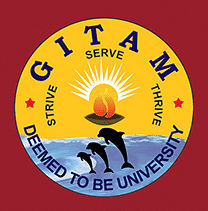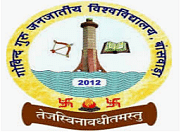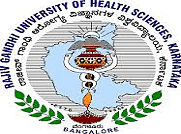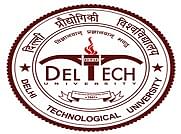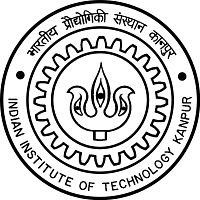Exploring
the Cosmos: Your Ultimate Guide to M.Sc. Space Science Admission, Eligibility,
and Syllabus
In an era of rapid advancements in space exploration, pursuing an M.Sc. in Space Science can unlock a universe of opportunities. This guide provides
detailed insights into M.Sc. Space Science admission processes, eligibility
criteria, and the comprehensive syllabus you can expect in this exciting field.
Whether you are an aspiring astronaut, a future astrophysicist, or a space
technology innovator, this guide will help you navigate your educational
journey.
M.Sc. Space Science Admission Process
The M.Sc. Space Science admission process is designed to identify passionate
and capable individuals ready to contribute to the field of space exploration.
Here’s a step-by-step breakdown of what you need to do to secure admission:
1. Research
and University Selection: Start by researching universities that offer
M.Sc. Space Science programs. Look for institutions known for their strong
faculty, state-of-the-art research facilities, and industry connections.
2. Entrance
Exams: Most universities require candidates to clear entrance exams
such as the Graduate Aptitude Test in Engineering (GATE), Joint Admission Test
for Masters (JAM), or university-specific tests. These exams evaluate your
knowledge in physics, mathematics, and engineering principles—core subjects for
space science.
3. Application
Submission: After clearing the entrance exams, the next step is to
submit your application. This generally includes your academic transcripts,
entrance exam scores, letters of recommendation, a statement of purpose, and a
resume highlighting any relevant experience.
4. Interview
Process: Shortlisted candidates are often invited for an interview.
This stage assesses your passion for space science, problem-solving abilities,
and comprehension of key concepts in the field.
5. Final
Selection: Universities will compile a final list of selected
candidates based on their performance in entrance exams and interviews. If
selected, you’ll need to complete the enrollment process, which may include
paying fees and submitting required documents.
Eligibility Criteria for M.Sc. Space
Science
Understanding the eligibility for M.Sc. Space Science is crucial
for prospective students. Here are the general requirements you need to meet:
1. Educational
Background: A Bachelor's degree in Physics, Mathematics, Engineering,
or a related field is essential. A strong academic record is a must, with most
universities requiring a minimum aggregate score of 50-60%.
2. Entrance
Exam Scores: High scores in entrance exams like GATE, JAM, or
university-specific tests are often required. These scores are a significant
part of the selection process.
3. Work
Experience (Optional): While not always mandatory, relevant work
experience in research organizations, space agencies, or related fields can
enhance your application.
4. Language
Proficiency: For international students, proficiency in English is
necessary. Standardized test scores from TOEFL or IELTS are usually required.
5. Age
Limit: There is generally no strict age limit for M.Sc. Space Science
programs, but candidates are typically within the age range of 20-30 years at
the time of admission.
Syllabus and Curriculum for M.Sc. Space
Science
The M.Sc. Space Science syllabus is meticulously designed to provide a
thorough understanding of space phenomena, blending theoretical knowledge with
practical skills. Here is an overview of the subjects you can expect:
1. Fundamentals
of Space Science: This introductory course covers the basic concepts
of space science, including the history and development of space exploration.
2. Astrophysics:
This subject focuses on the physical properties of celestial bodies and the
universe. Key topics include stellar dynamics, galactic astronomy, and
cosmology.
3. Planetary
Science: This course examines planets, moons, and other celestial
bodies within our solar system. It includes studies in geology, atmospheric
science, and the potential for extraterrestrial life.
4. Space
Mission Design and Analysis: This subject teaches the principles of
designing and analyzing space missions, covering spacecraft design, trajectory
planning, and mission operations.
5. Remote
Sensing and Satellite Communication: Students learn about remote
sensing technologies and satellite communication systems, including the use of
satellites for earth observation and data transmission.
6. Spacecraft
Systems and Instrumentation: This course delves into the detailed
study of spacecraft systems and their instrumentation. Topics include
propulsion systems, navigation, and control systems.
7. Space
Environment and Space Weather: Understanding the space environment and
the impact of space weather on space missions is crucial. This course covers
the solar-terrestrial relationship, radiation belts, and magnetosphere.
8. Computational
Methods in Space Science: This subject focuses on the computational
tools and techniques used in space science research and data analysis.
9. Experimental
Techniques in Space Science: Practical skills are honed through
hands-on experiments and laboratory work, including the design and use of space
instruments.
10. Research
Methodology and Thesis Work: The program culminates in a research
project or thesis, allowing students to apply their knowledge to real-world
problems and contribute original research to the field of space science.
Career Prospects After M.Sc. Space Science
Graduates of M.Sc. Space Science programs have a wide array of career
opportunities. They can work in prestigious space agencies like NASA, ISRO, and
ESA, or pursue careers in aerospace companies, research institutions, and
academia. Roles include:
- Space Scientist:
Conducting research to advance our understanding of space.
- Astrophysicist: Studying
the physics of the universe.
- Satellite Engineer:
Designing and managing satellite systems.
- Mission Planner: Planning
and executing space missions.
- Data Analyst: Analyzing
data collected from space missions.
- Academician: Teaching and
mentoring the next generation of space scientists.
Conclusion
Pursuing an M.Sc. in Space Science is a thrilling and intellectually
rewarding journey. By understanding the admission process, meeting the
eligibility criteria, and familiarizing yourself with the syllabus, you can
prepare effectively for a successful career in space science. With the universe
as your classroom, the possibilities are truly limitless. Start your journey
today and be part of humanity's quest to explore the cosmos.





